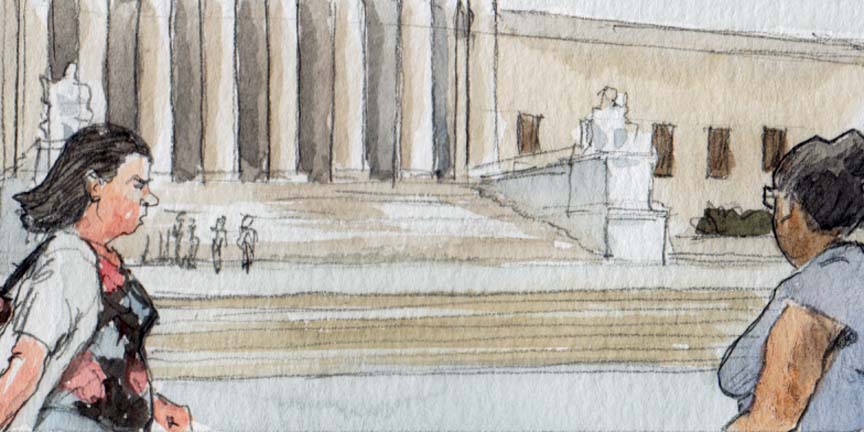Wednesday round-up

on Feb 14, 2018 at 7:19 am

Marking yesterday’s second anniversary of the death of Justice Antonin Scalia, Tony Mauro and Marcia Coyle report at The National Law Journal (subscription or registration required) on “how Scalia admirers, critics and clerks are thinking about Scalia and his legacy, two years later.” Joan Biskupic reports at CNN that “[w]hatever cooperative spirit developed” while the court was short-handed in the wake of Scalia’s passing “appears to have faded now.” In an op-ed in The Washington Post, Richard Hasen remembers the late justice as a “disrupter” who “gave key conservative acolytes tools to advance an ideological agenda — tools that he presented as politically neutral.”
Briefly:
- At Bloomberg, Greg Stohr reports that four “relatively centrist justices,” Chief Justice John Roberts and Justices Anthony Kennedy, Stephen Breyer and Elena Kagan, who share “a willingness to muffle some disagreements for what they see as a greater good,” “will be tested during what could be a divisive stretch starting next week, when the court reconvenes after a month-long recess” “to rule before the end of June on partisan gerrymandering, voter-database purges, mandatory union fees, Trump’s travel ban and possibly his effort to rescind a deferred-deportation program.”
- At The Economist’s Democracy in America blog, Steven Mazie observes that Minnesota Voters Alliance v. Mansky, which asks whether a Minnesota law banning political apparel at polling places violates the First Amendment, “pits the freedom of speech against the right to vote” and “promises to be a lively discussion of a tussle between rights that ordinarily point in the same direction.”
- At the Lawline Blog, Sarah Mills notes that Lozman v. City of Riviera Beach, Florida, in which the justices will decide whether the existence of probable cause defeats a retaliatory-arrest claim, “has the potential to impact the defense of retaliation claims raised by bystanders who film the police.”
- At Empirical SCOTUS, Adam Feldman examines the oral advocates and justices involved in “cases where the Court directly shifts policy either by ruling a statute (federal, state, or local) unconstitutional or by overturning its own precedent” since October Term 2000.
- Subscript offers a graphic explainer for City of Hays v. Vogt, which asks whether a probable cause hearing is part of a criminal case within the meaning of the Fifth Amendment’s self-incrimination clause.
- At Take Care, Caroline Mala Corbin weighs in on Masterpiece Cakeshop v. Colorado Civil Rights Commission, in which the court will decide whether the First Amendment bars Colorado from requiring a baker to create a cake for a same-sex wedding, arguing that “[t]his is a classic case of false equivalence,” and explaining why “[t]he claims of the white Christian bakers and gay fiancées are not the same.”
- In an op-ed in The Washington Post, Evelyn Baker, the judge who imposed the 241-year sentence challenged as an Eighth Amendment violation in Bostic v. Pash, a pending cert petition, urges the court to “take the case and give Bostic the chance I did not: to show that he has changed and does not deserve to die in prison for something he did when he was just 16.”
We rely on our readers to send us links for our round-up. If you have or know of a recent (published in the last two or three days) article, post, podcast, or op-ed relating to the Supreme Court that you’d like us to consider for inclusion in the round-up, please send it to roundup [at] scotusblog.com. Thank you!


